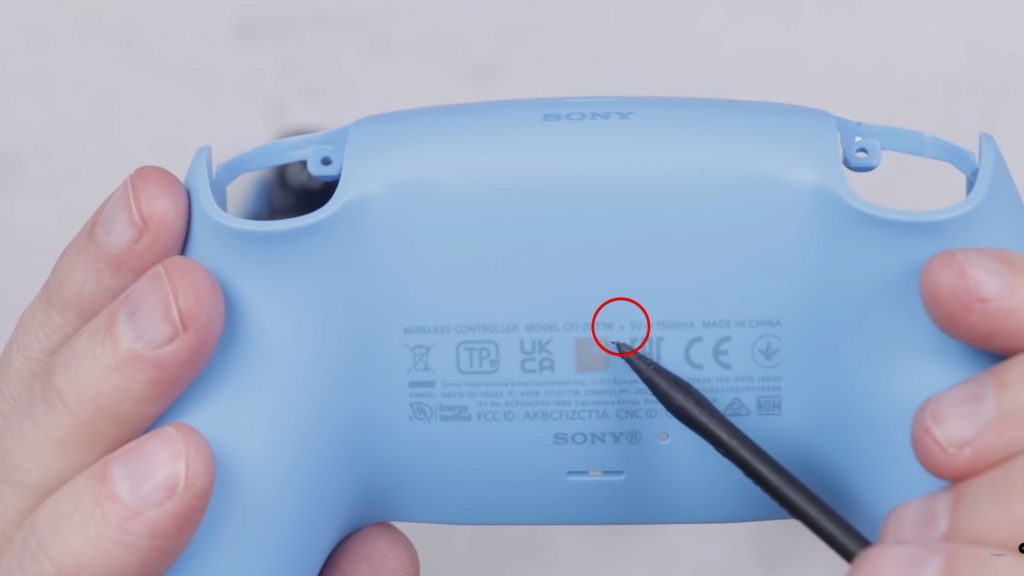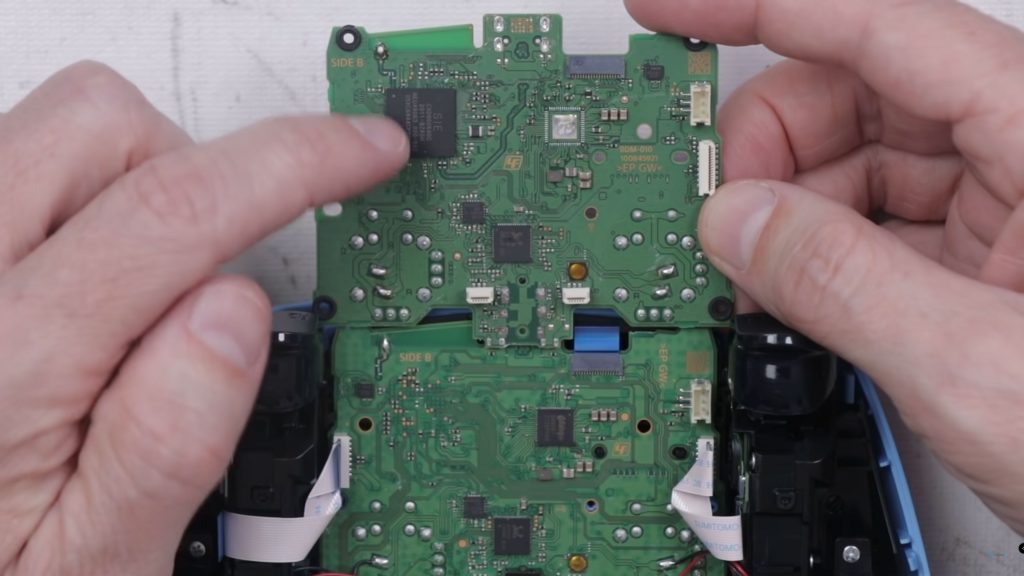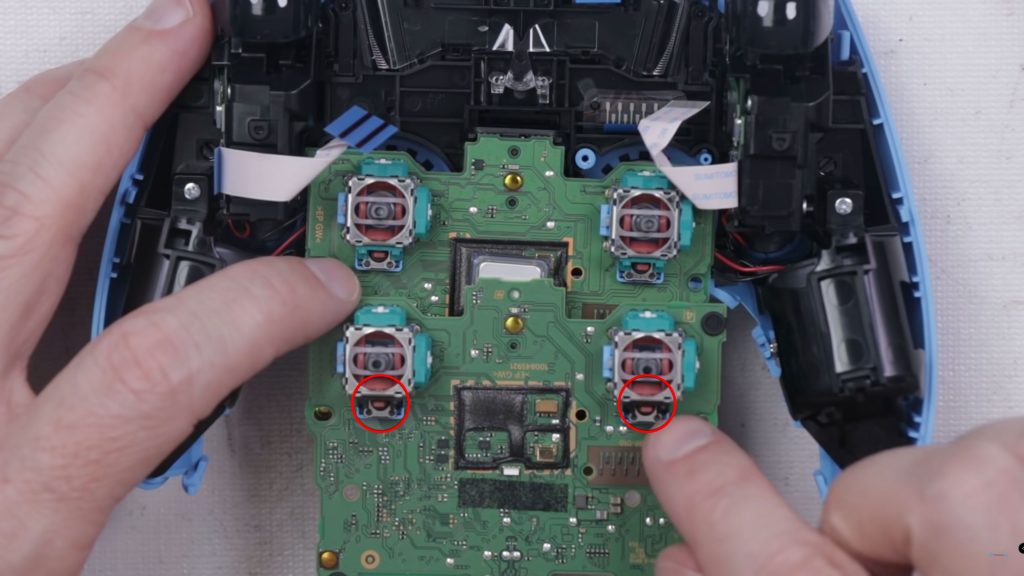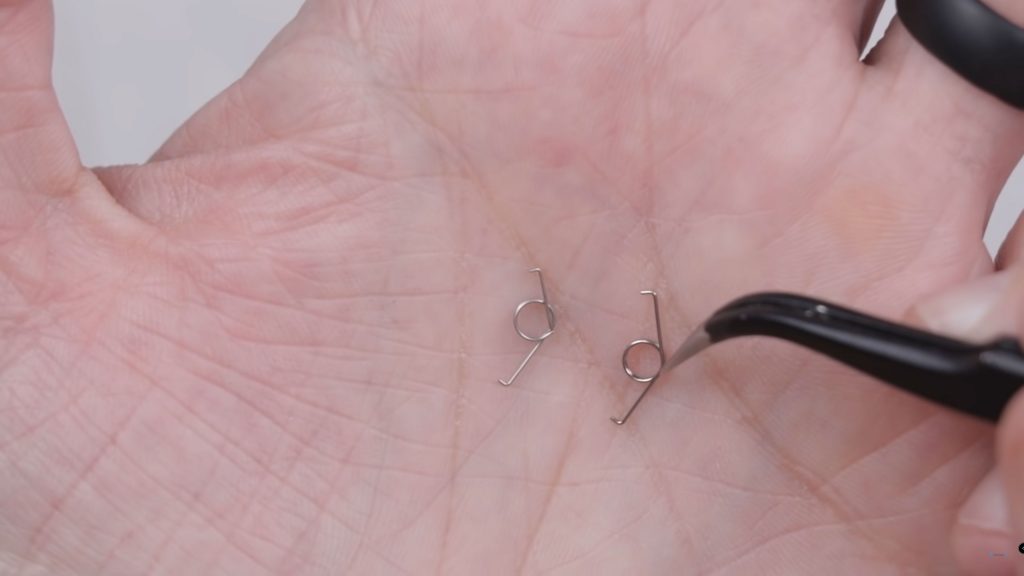New colors aren’t the only thing that make the PS5’s recently released DualSense wireless controllers stand out. Minor optimizations could improve the lifespan of the hardware!
In his recent video clip, tech-youtuber TronicsFix disassembled and analyzed the PS5 DualSense controllers, which will be offered in three new color combinations. In addition to some very obvious changes, there are also smaller changes that could extend the lifespan of the controller and reduce the error-rate. The first change appeares on the back of the controller. Next to the modelnumber CFI-2CTTW there is a small A (red circle in the following picture). This could give an indication to the revision of the controller. However, the A cannot be found on all controllers.

New circuit board for the DualSense wireless controller
After opening the PS5 controller, the first thing you notice is the battery. Direct comparisons with the first controller models show that nothing has changed in terms of performance and size of the battery. The surprise lays behind the battery. Sony has completely redesigned the controller’s motherboard. This is not only smaller, but also features a new layout for the chipsets. In addition, the attachment of the main circuit board to the controller has been revised, possibly to protect it from damage caused by shock (which is often associated with lost games at FIFA or Elden Ring).

Another innovation can be seen on the back of the circuit board with the analog sticks. One of the plastic clips is a different color (green). The YouTuber cannot say whether this is a different material or just a different color. Of course, it would be great, if this change would put an end to the stick-drift-problem that occurs from time to time, or at least delay it if the controller is used constantly. However, these new plastic clips couldn’t be found in all the new DualSense controllers. Some of them were installed in regular “black” (circle).

Thicker springs for the adaptive triggers
The last improvement, or at least difference to the previous model, can be found in the adaptive shoulder buttons (Adaptive Trigger). The spring that stretches them back and, in a few cases, can also be responsible for a defect in the controller, has been “optimized”. Instead of 2.5mm, it now measures 3mm and is therefore 20 percent “stronger”. Whether this is really a deliberate improvement, or whether the nib just happened to be a little thicker (yet still within production specs) is also hard to say. Such a small change can have a significant impact on the mass of controllers Sony will sell over the PlayStation 5’s lifecycle.

In any case, it’s nice to see Sony continuing to improve their controllers and apparently trying to address any issues and misbehavior that arised in the past. Will these changes improve the lifespan of the DualSense Controller? Only the future will tell! You can find the full video of the teardown below:



